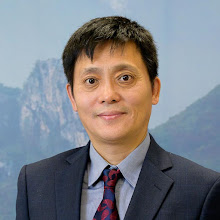Tiejun Tang
Internal organ prolapse is a common clinical condition.
Pelvic organ prolapse (POP) is a common condition affecting
many adult women. Prolapse can affect a variety of organs, for example, in
women it can affect the uterus, vagina or bladder, while rectum prolapse can
happen to both sexes. Except pelvic organs, prolapse also might happen in
stomach or kidneys.
The
clinical manifestations are various according to the effected organ. Uterus and
vagina prolapse
can cause irritation to vaginal tissues or pain during intercourse, as well as
psychological stress; bladder prolapse can cause stress incontinence and
difficulty in starting to urinate; rectum prolapse can cause trapped stool,
anus pain, pressure, and constipation; stomach prolapse can cause reduced
appetite, bloating, nausea, constipation or loose stool; kidney prolapse can
cause lower back pain, microscopic hematuria and urinary tract infection. Irrespective
of where the prolapsed is, most patients will suffer from fatigue and prolapse
sensation in the pelvis or abdomen.
Western medicine will mainly
treat internal organ prolapse by surgical operation. A newer
option is laparoscopic surgery. These operations maybe cause some complications
such as urinary tract infection, temporary or permanent incontinence,
infection, bleeding and some women may even develop chronic irritation or pain
during intercourse from a suture or scar tissue. There is also a risk of recurrence after operation.
The
Chinese medicine theory believes that the spleen dominates muscles. All the
internal organs are fixed by smooth muscles to keep them in the normal
position. Organs prolapse due to the sinking of the Qi of the middle Jiao, meaning
the Qi sinking in the spleen and stomach.
Therefore,
Chinese medicine aims to treat the prolapsed organs with the same treatment
principle – i.e. lifting the Qi of middle jiao by tonifying the spleen and
benefit Qi. Lifting spleen Qi can lift prolapsed organs. There is a famous
herbal formula called Bu Zhong Yi Qi Tang
and it is the first choose for this condition. This formula contains eight ingredients;
the most important ingredient is Huangqi (Radix Astragli)
and it must be used in high doses. Amendments
to the original formula are always necessary according to the individual case.
Acupuncture is also significantly effective in lifting spleen Qi. Some
acupoints on the spleen and stomach meridian can be selected, like SP10, SP6,
ST36, ST25. Some local points on Ren meridian can be selected, like RN12, RN6,
RN4 and RN3. All the points should apply tonifying manipulation.
Chinese medicine has adopted this method to treat prolapsed organs since
Jin Dynasty (1115 – 1234AD) and there were a great number of successful cases
recorded in classic literature. Personally, I have also treated many successful
cases in my own practice. A good combination of herbal decoction and
acupuncture will see increased effectiveness in lifting prolapsed organs.

